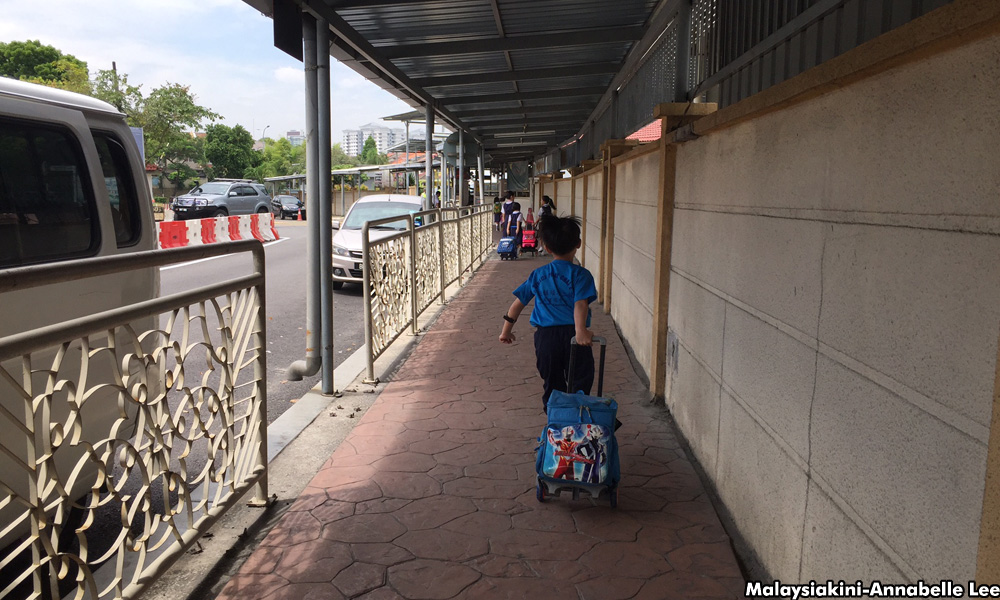An open letter to Dr Maszlee Malik on curbing PIBG abuses

THE role played by PIBGs (Parent-Teacher Associations) is important in helping schools to provide conducive learning environments for children.
However, based on my personal observations and those from a few parent lobby groups such as Jiazhong, PAGE, Magpie, Aspires, and Penang Hope, I have arrived at one conclusion: If the Education Ministry fails to tighten the control over PIBGs, they will become an open cheque for some school principals.
However, based on my personal observations and those from a few parent lobby groups such as Jiazhong, PAGE, Magpie, Aspires, and Penang Hope, I have arrived at one conclusion: If the Education Ministry fails to tighten the control over PIBGs, they will become an open cheque for some school principals.
The PIBG constitution is too loose, and although there are education officers at the local district and state education departments monitoring the schools and the PIBGs, often the enforcement is lagging, making even the annual general meetings and the minutes they produce a mockery of our system.
There is so much room for abuse and despite complaints lodged with the ministry at all levels, parents often feel that they are complaining to a blank wall. To solve the woes that parents face, some of these officers should be replaced and always kept on their toes.
Recently, after your ministry banned the paid IT literacy classes conducted during school hours in Chinese primary schools, some people claiming to represent PIBGs nationwide campaigned against the ministry’s directive issued in April this year.
Are we deceiving ourselves that the principals who act as PIBG advisors, knew nothing about this so-called campaign by PIBGs? In almost all cases, the PIBG would consult the principals before they do anything.
Dr Maszlee should just visit the Facebook of parents groups such as Jiazhong, Malaysian Education Info, and SJKC Fee Monitoring to fully grasp why parents are whacking these people.
Some of these PIBGs are paying in the quantum of RM200,000 a year to engage external vendors and enjoying a profit margin of 30% — all at the expense of parents! This is not the only source of income for the PIBG, which explains why some PIBGs can have up to RM700,000 in cash balance.
As the newly minted minister, I hope you will start to look into how to control the huge funds in some PIBGs and stop the abuses by some school principals and their PIBGs.
My friend, who is a member of Parliament in the state of Johor, told me that he receives many letters asking for donations from the PIBGs. When I was working with Monash University, I also received a lot of letters from school PIBGs asking for donations. At the moment, there is no way to ascertain if the same letter was also sent to different organisations.
I would not be surprised for one event costing RM5,000, there could be multiple donations of RM5000 from different organisations. There is nothing wrong if the PIBG uses the money for the good of the children, but there needs to be a mechanism for proper accountability. It will take a good auditor to be able to pick up the hidden expenditures.
Frankly, we are not against PIBGs trying to raise funds on behalf of their schools. While I was helping my son’s PIBG, I also raised funds for some worthwhile projects from external sources; I only stopped paying any fee often disguised as “donations” to the PIBG after I saw how much money there was in the PIBG fund and how it was utilised!
It got on my nerves when I learnt that a secondary school in Bandar Utama was charging RM5 per child per annum for the use of the school toilets this year, when the ministry had already provided allocations to maintain the schools.
Prior to the general election, former deputy prime minister Ahmad Zahid Hamidi himself decried that a school hall built in his constituency did not appear worth RM600,000. We have yet to hear what happened after that.
I strongly feel there is a need for more accountability on the part of the principals, the PIBGs and the board of governors on the way how public money is spent. – June 28, 2018.
* Stephen Ng reads The Malaysian Insight.
* This is the opinion of the writer or publication and does not necessarily represent the views of The Malaysian Insight.

Comments